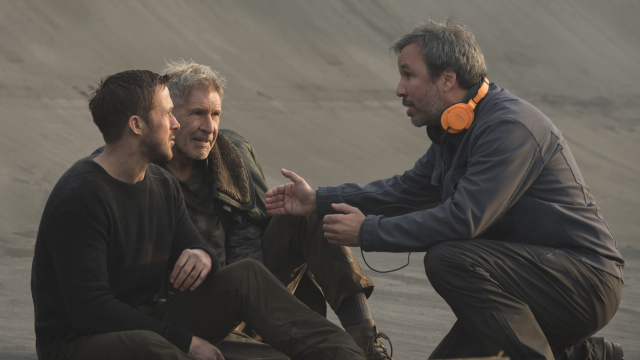First up, Denis Villeneuve needs to complete Dune. That’s next on the director’s to-do list. After that though, he’s just signed on to helm another sci-fi classic from an absolute legend, Arthur C. Clarke. Villeneuve will direct Rendezvous with Rama, based on Clarke’s award-winning 1973 novel.
“This is one of the most intelligent works of fiction in the genre; it poses as many questions as it does answers, and is a work for our time,” Alcon co-CEOs Broderick Johnson and Andrew Kosov said in a press release. “It’s perfectly fitted to our friend and collaborator Denis’ brilliant sensibilities and specifically to his love and passion for science fiction. We are also pleased to work with Morgan [Freeman] and Lori [McCreery] who have a long-standing passion for this IP.” Freeman (yes, that one) and McCreery run Revelations Entertainment, which owned the project’s film rights before Alcon took them over.
Now, even if you didn’t know Villeneuve was going to direct, Rendezvous with Rama sounds like something he’s perfectly suited for. It’s the story of Earth detecting an alien spaceship coming into our solar system, and the mission humanity mounts to go meet it. Knowing just that, you might say it sounds like a story with the epic, global scope of a Dune mixed with the wonder and humanity of Arrival. So who better than the man who directed those movies to make this new film?
Freeman and his company have owned the rights to Rendezvous with Rama for several years now, with Fight Club director David Fincher long attached to direct. At the time, though, they were unable to get a workable script or financing. Alcon has now stepped in to make it with Villeneuve, a director it made another adaptation of a legendary sci-fi author’s work with: Blade Runner 2049, based on the work of Philip K. Dick.
There’s no word on when all of this would be set in motion but with Dune: Part Two scheduled for release in 2023, one would imagine at least two years after that would be the earliest we’d see it.
